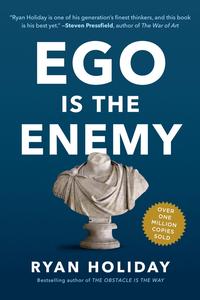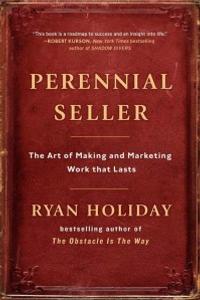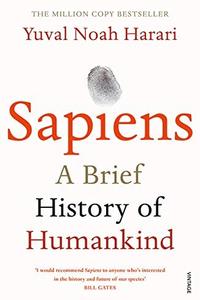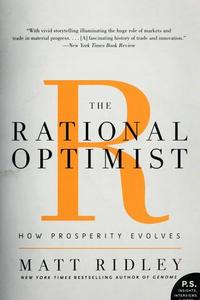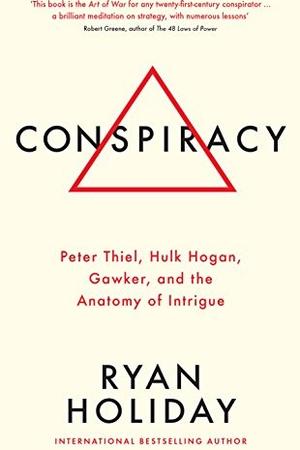
Conspiracy by Ryan Holiday: Summary & Notes
by Ryan Holiday
In One Sentence
The true story of Peter Thiel's secret, decade-long plan to destroy Gawker Media through funding Hulk Hogan's lawsuit—a modern tale of power, revenge, and patience.
Key Takeaways
- Long-term thinking and patience can achieve seemingly impossible goals
- Strategic secrecy is sometimes necessary
- Revenge served cold: wait for the right moment
- Understand your enemy's weaknesses
- Legal and financial warfare are real tools
- Even powerful institutions have vulnerabilities
Summary
A fascinating book, despite being a self-admitted departure from Ryan Holiday’s usual writing. I listened to this as an audiobook, which I think is the best way for this particular book. The story itself is fascinating - a modern conspiracy actually carried to fruition, but the questions it brings up are even better:What would it look like if more people planned, took deliberate action, to accomplish a goal?What if more people took action to change the world behind the scenes, instead of talking about it?Immaculate contingency planning, humility, and resources can bring great results. Where can I incorporate these tactics in my own life?Overall, a fun departure from typical non-fiction that I very much enjoyed. Would certainly recommend, and as I mentioned, I’d suggest the audiobook.
Who Should Read This Book
- Anyone interested in power and strategy
- Media and tech industry observers
- People who enjoy true stories of revenge
- Strategic thinkers
FAQ
What is Conspiracy by Ryan Holiday about?
It tells how Peter Thiel secretly funded Hulk Hogan's lawsuit against Gawker for publishing his sex tape. Thiel waited years after Gawker outed him as gay, found the right case, and systematically destroyed the media company through the legal system.
📖 Chapter-by-Chapter Breakdown
Click to expand the full detailed notes for every chapter →
📖 Chapter-by-Chapter Breakdown
Click to expand the full detailed notes for every chapter →
Favorite Quotes
- "Perhaps we have too few conspiracies, not too many. Too little scheming, rather than too much. What would happen if more people took up plotting, coordinating how to eliminate what they believe are negative forces and obstacles, and tried to wield power in an attempt to change the world? We could almost always use more boldness, and less complacency.”"
- "Fights break out. Conspiracies brew.”"
- "We are often taught that successful strategy is a matter of boldness, but it has also always been the case that it’s as much a matter of patience and due diligence as it is of noticeable action."
- "It has been the great collective self-deception of Silicon Valley, and perhaps of our age, that a person can engage in aggressive “disruption" of existing industries while pretending that they are not at least similar to the ruthless capitalist barons of the previous century, that there is not a drop of Carnegie or Rockefeller or Vanderbilt DNA in the whole business."
- ""The problem with the Silicon Valley," as Jim Barksdale, the former CEO and president of Netscape, once put it, "is that we tend to confuse a clear view with a short distance.”"
- "And so the essential trait of the successful man is not only perseverance but almost a perverse expectation of how difficult it is going to be. It is having redundancies on top of redundancies, so you can absorb the losses you eventually incur."
- "Another maxim from Napoleon: "Never interrupt an enemy making a mistake.”"
- "Cunning and resources might win the war, but it’s the stories and the myths afterward that will determine who deserved to win it."
- "What would the world look like if more people tried to change things, conspired to change things they found unjust, unfair, immoral?"
- "In a time when computers are replacing many basic human functions, it will eventually come to be that audaciousness, vision, courage, creativity, a sense of justice—these will be the only tasks left to us."
Notes
- Conspiracy: entails determined, coordinated action, done in secret—always in secret—that aims to disrupt the status quo or accomplish some aim.
- Nick Denton (Gawker founder) responsible for shift from number of posts to page views as key metric.
- The economist Tyler Cowen once observed that at some point in the 1970s, Americans went from being the country that took literal moonshots to being the people who waited patiently in long lines for gasoline. It’s not completely accurate, of course, but it is a criticism that resonates with Thiel as he sits in his office at the Presidio one day looking at the Golden Gate Bridge and wonders if people will ever build something like that again. Do people even have the arrogance anymore? To test the limits? To try big things?
- If someone asks him a question—say, about some controversial issue of the day—he does not simply react with an opinion, or pluck a conclusion from nowhere. Instead, he begins with, "One view of these things is that . . . , and then proceeds to explain the exact opposite of what he happens to personally believe."
- Only after he has finished, with complete sincerity and deference, describing how most people think about the issue, will he then give you his opinion, which almost always happens to be something radically unorthodox—all of it punctuated with liberal pauses to consider what he is saying as he is saying it. Even when he does describe his opinion, he prefaces it with "I tend to think . . ." or "It’s always this question of . . . ," as if what he is about to tell you is simply capturing where his opinion falls the majority of the time when running a thought exercise on the topic, as if he is always in the process of deciding what he thinks. And this is simply the process for articulating what he thinks.
- This is a method of thinking and conversing that needs to be more common.
- The Streisand effect: try to remove something from the internet publicly, more people will view it.
- "Anyone who is threatened and is forced by necessity either to act or to suffer," writes Machiavelli, "becomes a very dangerous man to the prince.”
- We are often taught that successful strategy is a matter of boldness, but it has also always been the case that it’s as much a matter of patience and due diligence as it is of noticeable action.
- Peter seems to have a preternatural ability to sense which lever to pull, what angle is the best approach, and it’s almost always something radically different from what your average person would select.
- An investor tells me that with each investment, Peter Thiel likes to ask: What do I know about this company that other investors don’t know? In other words: Do we have an edge? It’s only with some sort of informational asymmetry, goes the thinking, that one can not only beat the market but dominate it, and get the kind of return that takes a $500,000 check and turns it into a billion.
- At a certain point in every conspiracy each participant realizes that proceeding will require of them something that little else in their life ever has. What that is isn’t willpower or resources or creativity, but instead a certain hardness and viciousness—the hard, unforgiving utilization of power or even violence against other human beings.
- A friend would say that "Peter is of two minds on everything. If you were able to open his skull, you would see a number of Mexican standoffs between powerful antagonistic ideas you wouldn’t think could be safely housed in the same brain.”
- One of the informal mottos of the libertarian community is "Don’t hurt people and don’t take their stuff.”
- Almost every conspiracy is defined by a moment in which the timeline is radically altered, when the conspirators scramble to respond to a sudden change of events.
- Graham says that the founders enter a phase where the novelty begins to wear off, and they quickly descend from their early euphoria into what he calls the "trough of sorrow." A start-up launches with its investments, gets a few press hits, and then smacks right into reality. Many companies never make it out of this ditch.
- Today, we have a complex relationship with secrecy insomuch as we live in a world that no longer values it. Transparency carries now in the modern mind the weight of moral imperative.
- It has become a perversion of Nixon’s line about the cover-up being worse than the crime where today it’s automatically a sin if you keep it a secret.
- When people who don’t like what you’re doing know that you’re trying to do it, they are more likely to be able to stop you. It’s that simple.
- Being feared, Machiavelli says, is an important protection against a conspiracy. The ultimate protection, he says, however, is to be well liked. Not simply because people who love you are less likely to want to take you down, but because they are less likely to tolerate anyone else trying to, either.
- The line attributed to the management guru Peter Drucker is that culture eats strategy. It’s a truism that applies as much to conspiracies as it does to businesses.
- It always takes longer than expected, per Hofstadter’s Law, even when—and this is the critical part—one takes Hofstadter’s Law into account.
- And though we’d like to think that planning and resources—or righteousness and worthiness—determine who wins and who loses, they don’t. So often these things come down to a simple factor: Who wants it more?
- "You argue the law to show how much you know about the law,” Thiel would say, "but it’s not how you win a case in front of a jury.”
- Cunning and resources might win the war, but it’s the stories and the myths afterward that will determine who deserved to win it.
- How one rides out the chaos in the aftermath of a deed is everything. Winning, succeeding, pulling off the complex operation is the last step of one journey but simultaneously the first step in the next one, one arguably more important and more difficult than what came before. The next step is holding on to the victory. No matter how brilliant you are, how impressive the conspiracy was—it will be defined by what comes after.
- In the years he conspired against Gawker, Thiel would come to see the U.S. legal system differently. He later said that, before the case against Gawker, he had believed that the problem in America was too many lawsuits and too many lawyers.
- Having actually gone through the system, Thiel would come to believe that maybe there weren’t enough lawsuits. That people should try more.
- He learned another important lesson in that Florida courtroom, this one also about America—that average and ordinary people cared little for the assumptions of the so-called elites.
- But just as Nick Denton had learned watching Gawker evolve through the years, Peter would find in the months after his conspiracy that unleashing such wild, chaotic forces is a dangerous bargain. Thiel might be gay, an immigrant, libertarian, and generally civilized and thoughtful, but the people on the alt-right he found himself partly aligned with were not.
- Perhaps the most interesting unintended consequences, however, were the obvious ones. The ones that no one seriously thought could happen. First, the sex tape actually disappeared. Try to find it—I dare you. You can’t. The Streisand Effect now has at least one exception. Trying doesn’t always backfire.
- I said in the introduction that we might live in a world of too few conspiracies, not too many. We have plenty of opinions—plenty of histrionic complaints about how terrible and awful and stuck we are—but not enough people with the patience, coordination, and ambition to do anything about it. We used to throw bombs, now we throw tantrums—or worse, tweets.
- What would the world look like if more people tried to change things, conspired to change things they found unjust, unfair, immoral?
- The cleanest or at least the clearest lesson, illustrated in word but mostly in deed by Thiel, is in the power of secrecy, of coordination, and of pushing past those situations where "nothing can be done." In a time when computers are replacing many basic human functions, it will eventually come to be that audaciousness, vision, courage, creativity, a sense of justice—these will be the only tasks left to us. A computer can’t practice secrecy or misdirection, a computer can’t feel an urge to remake the world.
- Only humans can be that crazy.
- Lessons from Denton: arrogance, unpreparedness, shocking disregard for the humanity of many will ultimately end in ruin.
- Lessons from Thiel: hedge your bets, prepare to the full extent possible always, verify your assumptions, and act with humility (assume you are wrong, verify otherwise), and you will succeed.
